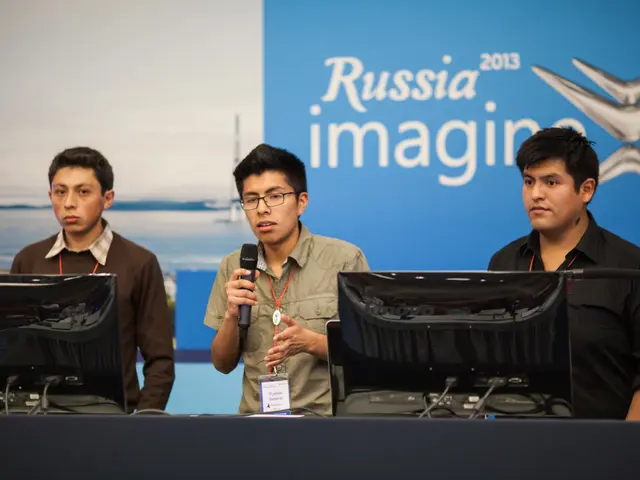Pakistan and Saudi Arabia sign a defense cooperation agreement
In a significant geopolitical move, Saudi Arabia and Pakistan have sealed a mutual defense pact, raising questions and concerns about its potential implications, particularly regarding nuclear weapons.
The agreement, aimed at developing defense cooperation and strengthening joint deterrence against any aggression, was confirmed by both nations. However, key details remain unclear, such as whether the pact extends to Pakistan's nuclear weapons arsenal. Both Pakistan and Saudi Arabia have declined to comment on this matter.
Pakistan, known for its deliberately ambiguous nuclear doctrine, has historically maintained a nuke weapons program to counter India's atomic bombs. According to the US-published Bulletin of Atomic Scientists, Pakistan currently possesses around 170 nuclear warheads, while India is estimated to have slightly more at 172.
Saudi Arabia's involvement in Pakistan's nuclear weapons program is a matter of speculation. Reports suggest that the kingdom provided funding for Pakistan's nuke weapons development in the past. However, these allegations have never been officially confirmed.
Pakistan's defense relationship with Saudi Arabia has a long history, dating back to the late 1960s when Pakistani troops were first deployed to Saudi Arabia due to concerns about Egypt's war in Yemen. The relationship deepened after Iran's 1979 Islamic Revolution and Saudi Arabia's subsequent fears of a confrontation with Tehran.
The pact defines any attack on either nation as an attack on both. Given Pakistan's nuke capabilities, which include weapons and delivery systems that could potentially reach targets across the Middle East and the US, this clause has sparked concern.
Not everyone is pleased with the new defense pact. Zalmay Khalilzad, a former US diplomat, has expressed his worries about the deal, fearing it could escalate tensions in the region. The Indian Ministry of Foreign Affairs has also acknowledged the pact and stated that they will study its implications for national security and regional stability.
Saudi Arabia's close ties with India, another nuclear power, add another layer of complexity to the situation. The agreement does not specifically discuss nuclear weapons, but a senior Saudi Arabian official's suggestion that Pakistan's nuke protection is part of the deal could imply nuclear protection for Pakistan.
As the details of the defense pact continue to unfold, it is crucial to monitor its potential impact on regional stability and nuclear non-proliferation efforts. The agreement marks a significant shift in the geopolitical landscape of South Asia and the Middle East, and its implications will be closely watched by the international community.
Read also:
- United States tariffs pose a threat to India, necessitating the recruitment of adept negotiators or strategists, similar to those who had influenced Trump's decisions.
- Weekly happenings in the German Federal Parliament (Bundestag)
- Southwest region's most popular posts, accompanied by an inquiry:
- Discussion between Putin and Trump in Alaska could potentially overshadow Ukraine's concerns







